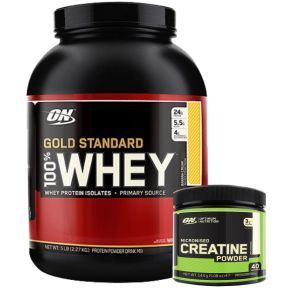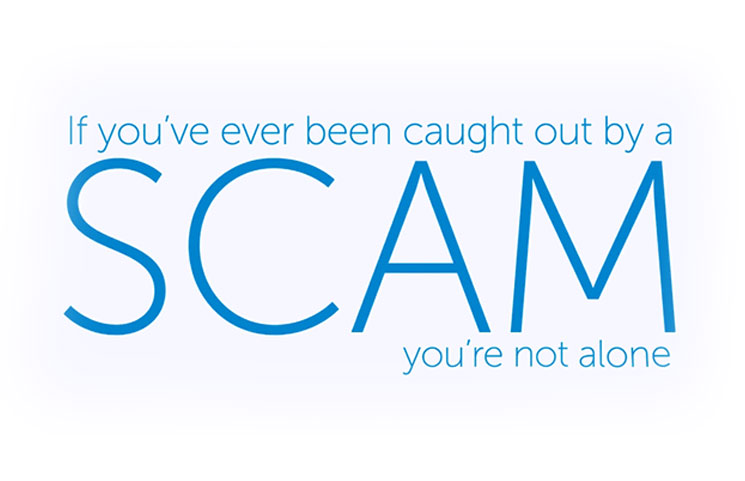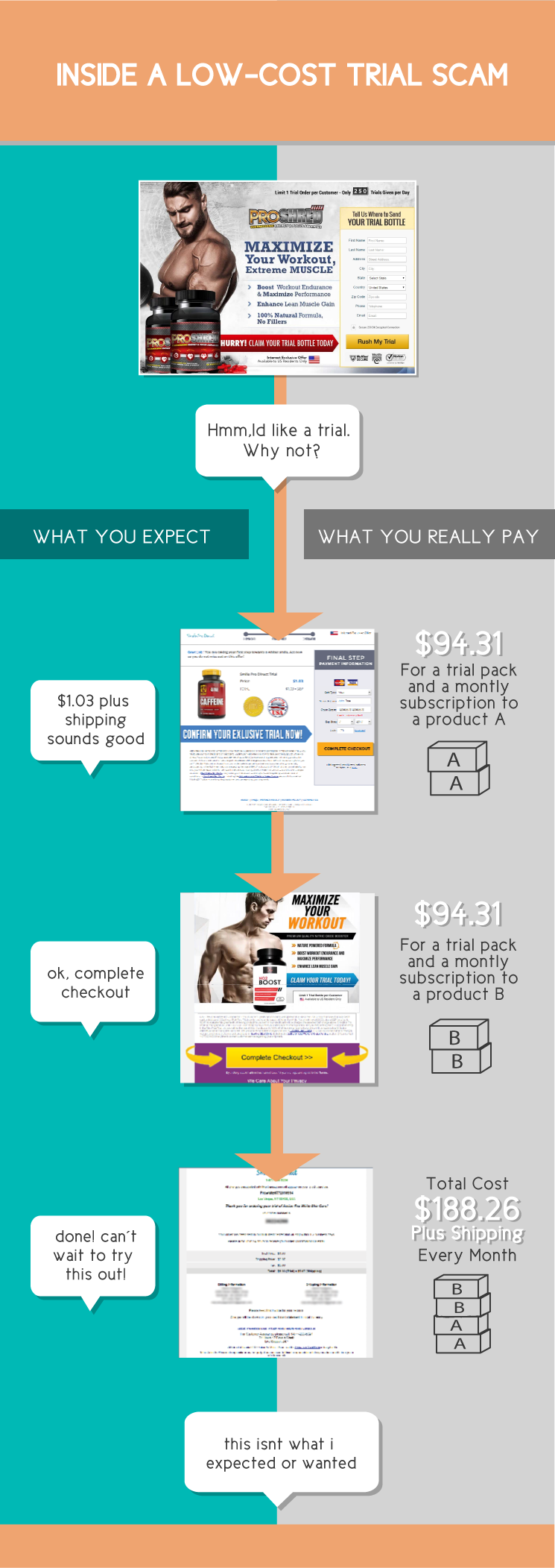The supplement industry is one of the biggest money makers on the planet. Every year in the United States alone the sale of supplements is valued at over $37 billion dollars. The global market for supplements is even bigger, valued in the hundreds of billions.
There are supplements for almost any imaginable effect- fat burning supplements, muscle boosting supplements, libido supplements, hair supplements, even nootropic supplements to enhance brain function.
Table of Contents
There are many supplements that consist of proven and effective formulas, and just as many supplements that deliver absolutely no benefits, relying upon hype and marketing misdirection to sell products.
The online supplement industry is extremely large, and in the massive ecosystem of online supplement sales, a number of highly effective and exploitative sales and marketing techniques have arisen that are taking advantage of naive consumers around the world
One of the most common “scams” in the online supplement marketplace isn’t by definition a clear scam, but relies upon manipulative sales techniques and negative consent to gain access to credit card information and charge consumers for ineffective or cut-rate products on a regular basis.
Referred to as the “free trial scam”, this technique has cost people around the world millions of dollars, and, due to the grey legal reasoning behind it, can never truly be stopped.
In this article, we’ll explain how the free trial scam has evolved, break down how it works, and arm you with information on how to recognize and avoid it to make sure you don’t get scammed yourself.
 The Online Supplement Industry
The Online Supplement Industry
Shady marketing practices in the supplement industry are not a new development in the grand scheme of history. The term “snake oil”, which is used to refer to ineffective or dodgy medicines or supplements can be traced back to the 1800’s, with historical records of quackery stretching back even further.
 The natural order of the world is homeostasis, which means organisms try to achieve as much as possible while expending as little energy as possible. This axiom extends into the world of human endeavors, with individuals seeking to lose weight, gain muscle mass, or reverse the cosmetic effects of aging constantly seeking new ways to improve their condition without a great deal of effort or difficulty- hence the popularity of fat burning pills and muscle boosting supplements.
The natural order of the world is homeostasis, which means organisms try to achieve as much as possible while expending as little energy as possible. This axiom extends into the world of human endeavors, with individuals seeking to lose weight, gain muscle mass, or reverse the cosmetic effects of aging constantly seeking new ways to improve their condition without a great deal of effort or difficulty- hence the popularity of fat burning pills and muscle boosting supplements.
Unfortunately, just as in the natural world, the ecosystem of online supplement sales is the domain of predators that feed upon the unwary. Instead of investing time and money into developing effective and high quality products, many supplement providers choose to adopt a different strategy- one of obfuscation, coercion, and manipulative marketing techniques.
These supplement providers purchase bulk amounts of the cheapest supplements available that can be tenuously linked to desirable effects and invest a great deal of money in advertising them to unsuspecting consumers.
Using creatively interpreted clinical trial results, networks of resellers, biased writers-for-hire that create compelling but inaccurate review articles, these supplement providers are the venus fly traps of the online supplement world, trapping hapless consumers into ongoing and costly financial agreements that are difficult to break.
The ongoing nature of the free trial scam is one of the most frustrating elements of the technique. Many reputable and effective supplement manufacturers provide their customers with the option to set up auto-renewing, auto-charging and auto-shipping that provides them with a steady stream of their go-to supplement on a regular basis.
Auto-shipping is a great option for individuals that have found a quality supplement that works for them, but this system is often abused by less-than-reputable companies that use it to hook consumers and take advantage of the optimistic perspective of supplement consumers.
The difficulty in escaping an ongoing supplement shipment from a scam company is compounded by the international nature of the online supplement business and the ever-shifting miasma of shell companies, front organizations, and difficult-to-trace parent companies of the dodgy companies that run them.
It’s common for a shady supplement manufacturer to create a shell company, market a product and snare thousands of unsuspecting consumers, only to take the money and run, allowing the shell company to fold while keeping the profits and providing customers with no financial recourse.
 Common Supplement Marketing Techniques
Common Supplement Marketing Techniques
The online supplement industry has now been in place and evolving steadily for almost three decades. Supplement manufacturers are now provided with powerful targeted advertising technology that allows the to insert advertisements into the social media newsfeeds and advertising media of internet users.
If you’ve ever searched for a product on Google, such as “protein supplement”, and found that your Facebook feed is suddenly flooded with fitness, training, preworkout, and gym advertisements, you’ll have noticed this effect. Whether or not you find this form of targeted advertising invasive or convenient, it definitely provides unscrupulous advertisers with an avenue through which they present consumers that are ready to buy with highly attractive advertisements that can sometimes make outrageous claims of their products.
False Celebrity Endorsements
These advertisements generally use blatantly unrealistic examples that demonstrated the effectiveness of their product, and frequently use celebrities and trending films to sell their supplements. A common technique, for example, is used in the fitness supplement industry. Supplement marketing companies will present consumers with an image of a fit celebrity, such as Dwayne “The Rock” Johnson, and make a statement like “Hollywood Fitness Elites Like Dwayne Johnson are Using Muscle Boosting Supplements Like MuscleMax and MegaTest to Build Muscle Mass While Burning Fat”.
Sound familiar? Now, MuscleMax and MegaTest don’t actually exist- or maybe they do- but one thing is certain- Dwayne Johnson has definitely never heard of these products in his life, and certainly doesn’t endorse them. These supplement companies get away with associating the names of high-profile celebrities with their products by liberal use of the magic word “like”.
Associating a product with a celebrity in this manner isn’t strictly illegal, and allows supplement marketing companies to catch thousands of consumers every day that are seeking a quick and easy way to build a body that looks like their idols. Dwayne Johnson doesn’t use supplement stacks- the man probably has a professional full time team of nutrition experts, dietitians, personal trainers and chefs supporting the development of his physique, because his body is literally a multi-million dollar product.
 Advertorials and False Reviews
Advertorials and False Reviews
Even more insidiously, these shameless supplement marketers often use the exact same wording and advertisement to sell different products, changing only the supplement name and continuing on. Shady supplement marketers often engage the services of online marketing geniuses that create vast networks of interconnected blogs, review sites, social media sites and “consumer watchdog” sites that, while they appear to be providing unbiased and informative reviews, are secretly pushing specific products in return for a commission on each product sold.
These marketers typically hire unscrupulous mercenary freelance writers that have no moral compunction in creating “scientifically backed” research articles that paint supplements in a positive light by creatively interpreting clinical trials and drawing tenuous links between the ingredients in less-than-effective supplements and real world results to make a quick buck.
All of these advertising techniques are designed to funnel consumers that are ready to purchase a supplement product to a product website that offers the bait on the hook- a free trial of the supplement in question. These sites are often designed to draw the eye away from the specifics of the trial and interest the reader in the benefits of the product formula, such as how it can boost libido, muscle mass, or fat burning, and are typically covered in flashy graphics and large, eye-catching promises.
As the saying goes, however, there’s no such thing as a free lunch. Free trials invariably come with strings attached, which can often result in a significant chunk of money leaving your bank account. We’ll proceed to explain this technique- called the “free trial scam”, and help you learn how to identify and avoid it.
 The Free Trial Scam
The Free Trial Scam
Using the word “free” in advertising any kind of product is one of the most effective marketing techniques known to man. Everybody loves free stuff, right? Offering anybody something for free is a guaranteed way to grab their attention, even if it’s just to get them questioning what the hidden trap is.
In the world of online supplement marketing, anything that is advertised as “free” is most definitely not free. The free trial scam traps millions of internet users every year and accounts for a massive chunk of the total revenue of the supplement market. This highly effective but irritation and morally bankrupt method of supplement marketing is even used to sell items that don’t need to be used more than once, such as teeth whitening treatments or kitchen utensils, flooding the mailboxes and credit cards of millions of people with overpriced, ineffective junk.
How the Free Trial Scam Works
The free trial scam works like this: once a consumer that is interested in purchasing a supplement has been trapped by one of the previously mentioned marketing techniques, they are guided to a product sale page that presents a compelling list of features and benefits. These pages often have phrases such as “Rush My Free Trial Now!” plastered across them, and can sometimes have a hilariously anachronistic countdown timer above the offer to present a sense of urgency.
 These pages also often cause dialog boxes such as “are you sure you want to leave this page?” to appear when internet users attempt to navigate away from them, or are coded to present the reader with an increasingly desperate series of pop ups offering better and better offers. Generally, price is never mentioned- readers are advised that for a small shipping cost, they will be provided with a trial bottle that allows them to test the efficacy of the product themselves, risk-free.
These pages also often cause dialog boxes such as “are you sure you want to leave this page?” to appear when internet users attempt to navigate away from them, or are coded to present the reader with an increasingly desperate series of pop ups offering better and better offers. Generally, price is never mentioned- readers are advised that for a small shipping cost, they will be provided with a trial bottle that allows them to test the efficacy of the product themselves, risk-free.
Once a consumer takes the bait and enters their financial and shipping information in the product website, the free trial scam begins. Here’s how it works:
- The consumer is hooked by aggressive and manipulative marketing. Falling for the compelling bait, they agree to the trial supplement offer and enter their financial details to pay the shipping fee.
- The trial product arrives via delivery, but something else has happened- by agreeing to the free trial, the consumer has also agreed to a monthly subscription and auto-delivery of the supplement by not “opting out”.
- A short time later, generally 14 days after agreeing to the free trial, the consumer is charged for the trial supplement and the first shipment at full price, which in most cases can cost between $100 and $200 USD.
- This process repeats every month until the consumer manages to cancel the subscription. The companies that execute the free trial scam often have complex, arcane cancellation processes that require several different cancellation and account numbers, and employ customer service representatives that are trained to delay the cancellation process for as long as possible.
The financial impact of the free trial scam typically costs the individual consumer between $500 and $1000 USD before they are able to cancel the order, by which time the responsible company is often unavailable for refund or comment. One of the most frustrating elements of the scam is that the product website often promise a “ 100% money back satisfaction guarantee”, which is almost never actually delivered on.
Most consumers that fall prey to the free trial scam are completely unaware that they were going to be charged so much money, or that they were even agreeing to an ongoing financial commitment. As a general rule, it’s best to maintain a suspicious and guarded mental frame when conducting financial transactions online, especially in the supplement industry.
Despite the dictates of common sense, however, many consumers are happy to plunge in headfirst and are trigger happy with their financial data. How do these consumers miss the key signs that they’re about to be scammed? The answer may not be as simple as you think. Let’s take a look at the warning signs that can indicate the presence of a free trial scam:
 How to Spot & Avoid the Free Trial Scam
How to Spot & Avoid the Free Trial Scam
The easiest way to spot a free trial scam is by reading the terms and conditions of the product. Most of the sites that execute the free trial scam don’t actually provide consumers with the information that they are entering into an ongoing agreement at any point during the registration and financial data fields, and instead are designed to simply take financial data and move on.
Common sense would dictate that before entering into an ongoing agreement, consumers would be presented with at least a check box stating that they agree to the terms and conditions, but in the case of the free trial scam, this doesn’t happen. The relevant information for these scams is provided, generally at the bottom of the website, in very small text, under a “terms and conditions” link.
 Gaining consent to regularly debit a credit card in this manner is called a “negative option”. If you actually view the terms and conditions of these sites, you’ll notice a large amount of difficult-to-decipher legalese that essentially means that by entering your details into the form on the page, you’re agreeing to the ongoing payment system.
Gaining consent to regularly debit a credit card in this manner is called a “negative option”. If you actually view the terms and conditions of these sites, you’ll notice a large amount of difficult-to-decipher legalese that essentially means that by entering your details into the form on the page, you’re agreeing to the ongoing payment system.
These terms and conditions generally contain the following phrases, or similar:
- “By placing your order you will be receiving an X day evaluation”
- “You will be enrolling into our autoship program once your evaluation period expires”
- “You will be charged $XX.XX per month starting X days from today and every 30 days thereafter unless cancelled”
- “You authorize us to initiate debit/credit entries to your credit card as indicated upon enrollment”
- “This authority is to remain in full force and effect until you cancel your auto shipment”
If you notice any of these phrases in the terms and conditions of a product, stay far, far away. If you can’t find the terms and conditions for a product, don’t provide the site with your financial details, especially if a free trial is offered.
These supplement companies are also known to make it extremely difficult to determine where their charges sit on your credit card statement, often using phrases in the terms and conditions that state that “Your transaction will appear on your credit card statement as (“”)”, meaning they appear as a blank space- if you’re unaware you’ve signed up, you won’t even know what the massive charges on your card are for.
Here are a few key warning signs to look for that can help you identify the free trial scam:
- Graphic-rich product pages that make spurious claims and lofty promises.
- Any variation of the phrases “free trial”, “trial bottle”, or “free sample”.
- Phrases or timers that are intended to present a sense of urgency, such as “Hurry!” or “Rush”
- First person statements, such as “YES! Send me my trial bottle now!”
Unfortunately, as deceitful as this marketing and sales tactic is, it is technically legal and doesn’t provide consumers with any recourse for recovering their lost money. If you’ve been scammed with a free trial offer, the best you can do is damage control by cancelling as fast as possible. Let’s take a look at what to do if you’ve been hooked by a free trial scam:
 What to Do if You’ve Been Scammed
What to Do if You’ve Been Scammed
Most consumers realise they’ve been scammed after the first large charge becomes apparent on their credit card statement. Unfortunately, most consumers are not sure what to do at that point, and find it extremely difficult in cancelling their order before further charges occur.
 There are several practices free trial supplement scams use to delay the cancellation process and make sure they’ve got enough time to charge a consumer several times before they’re forced to terminate the agreement. These organizations don’t have the best interests of the consumer at heart, and employ customer service teams that are instructed to delay the cancellation process as long as possible.
There are several practices free trial supplement scams use to delay the cancellation process and make sure they’ve got enough time to charge a consumer several times before they’re forced to terminate the agreement. These organizations don’t have the best interests of the consumer at heart, and employ customer service teams that are instructed to delay the cancellation process as long as possible.
A common technique used by free trial supplement scams once a consumer calls to cancel an order- provided that the consumer is able to find a customer service number- is to advise the customer that they will issue a return number, RMA number, or some other variation of cancellation order number that the customer can use to return the product.
After their fears have been assuaged, the customer waits patiently for an RMA number, which, of course, never comes- delaying the cancellation process further and allowing the company to debit their card again. At this point, most consumers lodge a complaint or dispute through their bank, which can take up to six weeks to be processed, and can be delayed further by the scam company lodging their own rebuttals to the dispute process.
If you’ve been hooked by the free trial scam, following is a comprehensive list of steps you can take to minimize the financial damage and cancel the order as soon as possible:
- Call your financial institution or bank as soon as possible. Many banks offer their customers the ability to selectively block charges on their credit card, so if your bank makes this option available to you, take advantage of it immediately to block the source of the scam supplement charges.
- Call the customer service line of the company that is charging you to cancel the subscription. In order to stay in business and remain questionably legal, these supplement companies must have a working cancellation phone line, but the lines themselves often involve extremely long wait times and far less than helpful staff. If you can’t find the number, your bank will be able to assist you. While on the call, ensure you get the customer service representative to email you proof that you have called to cancel.
- During the phone call, the company may offer you incentives and discounts to keep you subscribed. Occasionally, they may allow you to cancel, but advise that you must pay a “restocking fee” or similar to return the item. Don’t fall for this trick- insist that the company cancel all charges and issue a full refund.
- If you can’t find a phone number at all, and your bank doesn’t allow you to selectively cancel payments to specific retailers, you may need to cancel your card altogether. As a general rule, your bank or credit card company will be extremely helpful in this situation, and help you lodge any fraud complaints.
 Trying a Product Without Getting Scammed
Trying a Product Without Getting Scammed
In some cases, you may want to go ahead with a free trial despite being aware that the product is being marketed via unscrupulous sales techniques. This is actually more common than you may believe- in many cases, some of these companies offer supplements that are extremely competitively priced.
 Many preworkout supplements that are marketed in this manner are actually intelligently formulated and are able to deliver significant results. If you’ve assessed the terms and conditions of a product that is being marketed via a free trial scam technique but believe the ongoing cost is worth the price, or simply want to risk the cancellation scam to get a free trial bottle of a product, there are a number of ways you can protect yourself and cancel before charges kick in.
Many preworkout supplements that are marketed in this manner are actually intelligently formulated and are able to deliver significant results. If you’ve assessed the terms and conditions of a product that is being marketed via a free trial scam technique but believe the ongoing cost is worth the price, or simply want to risk the cancellation scam to get a free trial bottle of a product, there are a number of ways you can protect yourself and cancel before charges kick in.
To try a free trial product without getting scammed, try the following steps to keep yourself covered:
- Find the terms and conditions that govern the deal and make sure you have read and understand them fully. Don’t make an order with any company that doesn’t provide a contact phone number for cancellation.
- Call the cancellation number and confirm that it’s real and puts you in contact with a real representative of the company.
- When placing your order, mark down the date and time, and make a note of this date in your calendar twelve days in advance.
- Call the company between 6 and 12 days from placing the order. This gives the system sufficient time to ship you a trial bottle, but is still within the 14 day trial period that governs most free trial agreements. If the timeframe presented in the terms and conditions is different, adjust the time you call accordingly.
- When calling, don’t be enticed by retention offers and remain firm in your desire to cancel the subscription. Cancel the product and insist that they send you an email confirmation of your cancellation while you are on the call.
If you’ve identified the right kind of free trial supplement provider and performed the above steps correctly, then congratulations- you’ve gotten yourself a free trial product.
Take A Look at our online guides covering this topic. Some are a little more indepth with customer feedback on which companies to avoid and how to get in contact with them if you do make the mistake.
- Should You Avoid Garcinia Cambogia Free Trial Offers?
- Free Trial Skin Care Samples Review – Avoid Autoship Offers?
- Helpful List Of Phone Numbers For Free Trial Offer Cancellations
- FTC Lawsuit For Fraudulent Skin Care Free Trial Autoship Programs?
- How To Boost Testosterone Naturally & Avoid Free Trial Muscle Offers?
- Easy Step by Step Guide to Buying a Nutritional Supplement Online
 The Bottom Line
The Bottom Line
The free trial scam is one of the most common scams in the online supplement market, and catches millions of people every year. The best way of avoiding these scams is to not buy supplements on a free trial basis at all. In fact, you’ll usually find that if the supplement you’re considering buying offers a full ingredient list, you can buy the ingredients via online marketplaces such as Amazon in bulk amounts for a fraction of the price.
As this marketing technique isn’t illegal, it’s here to stay. By remaining a savvy, critical thinking consumer, however, it’s easy to avoid the scams and dodgy supplement companies to find reputable and trustworthy supplement manufacturers











I need some ome to contact me asap i didnt order more of your product but got some sent need it canceled and im returning the product so i need my money back
I received a bottle of Phallyx. Reviewed it on the internet but before finishing ordering, had some questions. Before I got an answer a male, think his name was Mike, contacted me trying to convince me to order Phallyx. My question was ” Do I have to take the item every day ? ”. His response was “Yes”. I told him I was not interested. Three days later I received a bottle of Phallyx, 60 tablets. I would like to return the product but do not have an address to return it. Would really appreciate any assistance you may be able to provide. Thank you.
Today is the last day, according to the ad for Pure Obsession Serum to order a “Free Trial”. Shipping & handling $4.95. After I agreed to pay the $4.95, I REMOVED THE CHECK MARK for the eye serum option. At check out, my “free trial” bill is now $10.90!!!! I am concerned now after reading someone was charged $87-$89 for the serum because the signed up for the free trial three days after the free trial offer date. Will this happen to me as I signed up ON THE LAST DAY OF THE FREE TRIAL?
Also, I CANT FIND ANYWHERE HOW TO CONTACT THEM! I knew better than this, now I’m concerned!